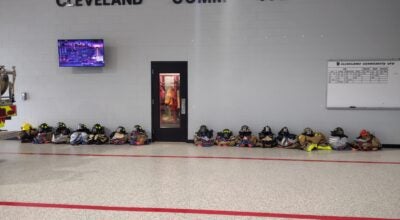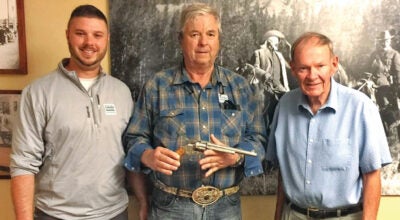Prayer lawsuit will be in federal appeals court Wednesday
Published 10:00 pm Saturday, January 23, 2016
Rowan County’s prayer lawsuit that started in 2013 will have its day in court this week.
Oral arguments in the prayer suit are scheduled for Wednesday morning in the U.S. Court of Appeals for the Fourth Circuit. Oral arguments will be held in Richmond, Va.
At its core, the case is about whether legislators such as Rowan County Commissioners are able to offer prayers before meeting. When the American Civil Liberties Union initially filed its lawsuit in 2013, it focused on the sectarian content of prayers. The prayer giver’s identity was mentioned in the original court filing, but has gained greater significance.
Rowan County Commissioners are being represented for free by attorneys from Texas-based National Center for Life and Liberty. Plaintiffs in the case — Rowan County residents Nan Lund, Robert Voelker and Liesa Montag-Siegel — are represented by the American Civil Liberties Union. Both groups are scheduled to have about 20 minutes each on Wednesday for oral arguments.
Recapping his organization’s court filings, ACLU North Carolina Legal Director Christopher Brook this week said the prayers offered by commissioners from 2007 to 2013 were coercive. He specifically referenced Supreme Court case Town of Greece vs. Galloway, which has become a major reference point for both parties in the case.
“What Rowan County has done and did was exactly what Justice (Anthony) Kennedy cautioned against and warned about,” Brook said.
One ACLU court filing states: “Rowan County fails to seriously grapple with the toxic and coercive atmosphere created by its board members.”
Coercion is a topic in the Supreme Court’s Town of Greece, N.Y. decision. In the court’s majority opinion, Kennedy extensively evaluates whether officials in Town of Greece, N.Y. coerced meeting attendees to pray. It’s unclear how coercion might apply to Rowan County Commissioners’ previous practices. For its part, ACLU attorneys have argued that commissioners coerced meeting attendees to participate in prayer by using phrases such as “let us pray.”
National Center for Life and Liberty attorney Barbara Weller interpreted the Greece vs. Galloway decision differently than Brook and the ACLU.
“What the Supreme Court said in Town of Greece is that you can have sectarian prayers as long as you don’t denigrate anyone or any religion,” Weller said. “That’s really the key point that we are making. The standard hasn’t changed.”
Weller said Rowan County’s position in the lawsuit is that commissioners aren’t any different than volunteer chaplains, which were permitted in the Supreme Court’s Town of Greece, N.Y. decision. She said the ACLU is trying to separate Rowan County Commissioners from a precedent set in the Town of Greece, N.Y. case. The Greece case never addressed who can offer sectarian prayers, she said.
While talking to the Salisbury Post this week, Weller said she felt strongly the U.S. Fourth Circuit Court of Appeals would rule in favor of Rowan County. However, also expressed a bit of hesitation.
“I don’t see how the court could come to any different conclusion,” she said. “So, you know from my perspective it seems like a no brainier, but you can never tell what a court can do.”
Similarly, Brook said “you have to be careful about how much tea-leaf reading you do.”
Neither side will know the court’s decision immediately following the oral arguments. The Fourth Circuit Court could rule within a few weeks or several months, both attorneys said.
In North Carolina’s Middle District Court, Judge James Beaty ruled against Rowan County, basing his argument on the identity of prayer givers, Rowan County Commissioners. He issued a permanent injunction with his ruling. Commissioners have voted to appeal the ruling.
Since the ruling, commissioners have asked Sheriff’s Office Chaplain Michael Taylor to give opening invocations at meetings. County Commissioners Chairman Greg Edds has also given a statement at every meeting that informs attendees of their ability to not participate.
Regardless of the ruling, Rowan County’s case could be appealed to the U.S. Supreme Court. However, the Supreme Court could decide not to take the case, which could make the Fourth Circuit ruling final.
Contact reporter Josh Bergeron at 704-797-4246.




